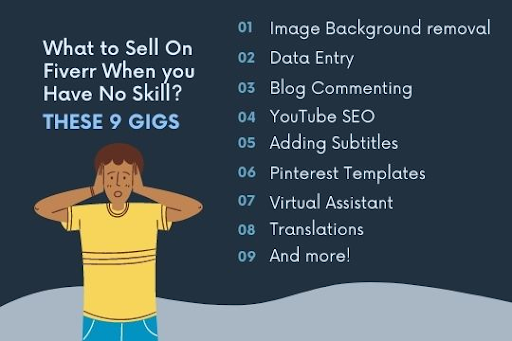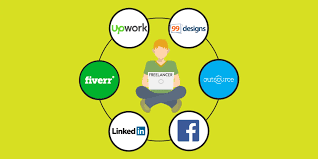Truth be told, living in Nigeria right now is hard. Prices are rising, jobs are disappearing, and even if you’re lucky to have one, your salary often vanishes before the end of the month. Sometimes you just pause and wonder, “When will things get better?” You’re not alone. Millions of Nigerians feel this way too. But here’s the truth, while you can’t control the economy, you can take control of your income. And one fantastic way people are doing this is through freelancing.
I’m not here to promise you millions overnight. This isn’t one of those “make $500 daily” scams. What I will say is this: freelancing is real, and with the right mindset and consistent effort, it can become a steady source of income, whether in naira or dollars. People across Nigeria are doing it successfully, some earning small side income, others turning it into full-time careers. And you can too, even if you have no prior experience.
So, what is freelancing? It simply means offering a skill or service to people or businesses and getting paid for each job. It’s not like a regular 9-to-5 job where you work for one boss. Here, you’re your own boss. You might write a blog post for someone, design a logo, edit a short video you p, or manage a social media page, and get paid for each task. You choose your hours, your rate, and the kind of work you want to do. Best part? You svv a. A work from your phone or laptop, even from your room in Agege, Aba, or Akure.
A lot of Nigerians hold back from starting because they think freelancing is already saturated. Let me be honest with you: that’s not true. Yes, more people are joining the space, but even more businesses are going online and hiring freelancers. We’re in a digital era where companies from the US, UK, Canada, and even Nigeria itself are outsourcing work like never before. From logo design to voiceovers, video editing to virtual assistance, the demand is growing, not shrinking. What matters is not whether the space is crowded, but whether you can learn to stand out. And guess what? You can.
What you need to start Freelancing
1. Skill
To start freelancing, the first thing you need is a skill. This could be writing, graphic design, voiceover work, video editing, customer service, or even data entry. If you don’t have any of these, don’t worry. You can learn. Platforms like YouTube, Google Digital Skills, Coursera, and ALX offer free training. Spend 2 to 4 weeks learning and practicing daily. You don’t have to be perfect—just good enough to solve a real problem for someone.
2. Create Samples
Once you’ve picked a skill, the next step is to create some simple samples. Clients want to see what you can do before they hire you, but you don’t need real jobs for that. Write two blog posts. Design a few flyers. Record a clear voice demo on your phone. Use Canva, Google Docs, CapCut, or any free tool that helps. Save your work on Google Drive and keep the links ready to share.
3. Sign up for a freelance account
Now it’s time to sign up on freelancing platforms. The most beginner-friendly ones are Fiverr, PeoplePerHour, Upwork, and Freelancer.com. Fiverr is a great starting point, it lets you create “gigs” (services) and clients reach out to you. On Upwork, you’ll apply to posted jobs directly. Either way, take time to create a professional profile and describe what you offer clearly. If a site is restricted in Nigeria, just use a VPN. Also, open a Payoneer account to receive your payments safely.
4. Smart Outreach
But don’t stop there. Don’t wait for clients to find you. Start marketing yourself even with your small network. Post your services on WhatsApp, Facebook, Twitter, LinkedIn, or Instagram. Tell your friends and family. Drop value posts in Facebook groups. Offer a discount to your first 1–3 clients to build reviews. It only takes one job to open the door to ten more. I’ve seen people land ₦250k, even ₦1m jobs after just putting themselves out there once.
Consistency is the key. You may not get your first client in your first week. You may get ignored. That’s part of the journey. But every time you improve your skill, rework your gig, or follow up with someone professionally—you’re one step closer to success. Clients don’t care if you’re from Nigeria. They care if you communicate clearly, solve their problems, and deliver good work on time.
So how much can you earn? Let’s be real about it. In your first month, you might earn ₦20k to ₦80k. Within 3–6 months of steady work, you could be earning ₦100k to ₦300k. And in a year or less, many Nigerian freelancers are making over ₦500k a month or even $1,000+ doing things like writing, design, or virtual assistance. That’s real money, and it’s possible if you stay consistent.
You may have concerns. “I don’t have a laptop,” someone might say. That’s okay. Many skills can be started on a smartphone. Use mobile-friendly tools like Canva (design), Google Docs (writing), and CapCut (video editing). “I’m scared I won’t get hired because I’m Nigerian.” Don’t worry. Thousands of Nigerians get hired daily. Clients care more about your communication and delivery than your location. “I’m not perfect yet.” Start anyway. You’ll learn and grow on the job.
Here’s the truth: you don’t need to be the best in Nigeria to start. You don’t need to know someone “on the inside.” You just need a skill, a smartphone or laptop, internet access, and the courage to try. You don’t even need money to begin, just time, effort, and the willingness to learn. Start small. Stay patient. Keep improving.
If you're ready to take action and you want a simple Fiverr gig template, help with your profile, or someone to guide you through the first steps, feel free to reach out. You can also check this guide on the Top-Selling Freelance Skills on Fiverr in 2025 You Can Start Right Now—it shows you exactly what’s working and how you can plug into it.
Freelancing is not for the lucky few. It’s for the willing. The bold. The persistent. And that includes you. You’ve got this.














